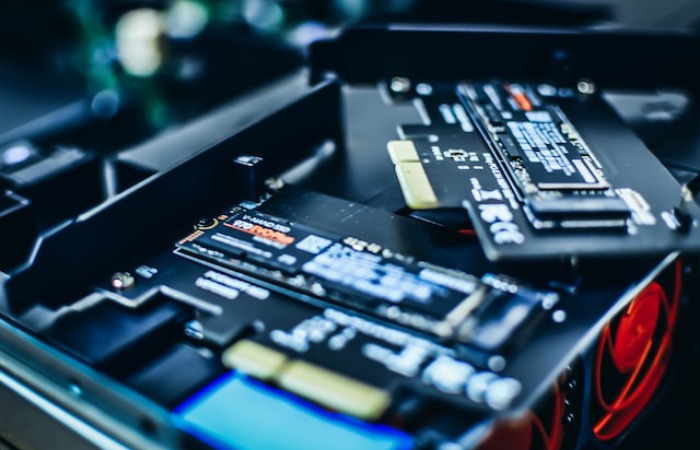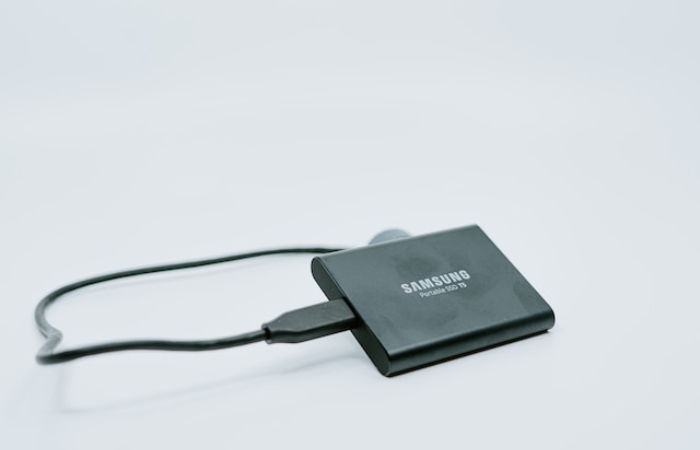SSD Write For US
Welcome to Techqueer.com. We are happy to accept the guest post about SSD, and Memory. With Player Counter, you can appear on the platform, share your knowledge with other players, and earn additional money.
We are looking for a writer who can write for us and contribute a post to our SSD below. In addition to that, your content must match our guidelines. Moreover, if you are looking for a website to start your career as a writer and get into the tranding page, you’re at the right place. I hope our requirements will match your content. Meanwhile, please send us your draft content at contact@techqueer.com
What Is SSD?
Solid-state drives (SSDs) are storage devices storing data on flash memory. Since flash memory is non-volatile, it keeps its information even after switching off the power. Compared to conventional hard disc drives (HDDs), solid-state drives (SSDs) are more resilient and speedier, but SSDs also cost more.
SSDs use a controller to read and write data to the flash memory chips. The controller is responsible for managing the wear leveling of the flash memory, which helps extend the drive’s lifespan.
Advantages of SSDs
Speed: SSDs perform significantly better than HDDs regarding read and write speeds. The performance of your computer or gadget may, therefore, considerably improve.
Durability: SSDs are more durable than HDDs, as they do not have any moving parts. This makes them less likely to fail and more resistant to shock and vibration.
Noise: SSDs are silent, unlike HDDs, which can be noisy when operating.
Power consumption: SSDs consume less power than HDDs, which can extend the battery life of your laptop or mobile device.
SSDs also have some disadvantages,
Cost: SSDs are more expensive than HDDs, especially for larger capacities.
Limited write endurance: Flash memory has a limited number of times that it can be written before it starts to fail. This means that SSDs may not be suitable for applications where a lot of data is written to the drive regularly.
Limited capacity: SSDs typically have a lower power than HDDs, but this changes as technology improves.
SSDs offer several advantages over HDDs, including speed, durability, noise, and power consumption. However, they are also more expensive and have a limited write endurance and capacity.
How to Submit Your Articles?
To submit your article at Techqueer.com, you can send an email or pitch us at contact@techqueer.com
Why Write For TechQueer – SSD Write For US

- Writing for TechQueer can expose your blog to customers looking for SSDs.
- TechQueer’s presence is on social media, and it will share your post with the SSD-related audience.
- You can reach out to SSD enthusiasts.
Article Guidelines on Techqueer – SSD Write For US
- We at Techqueer welcome fresh and unique content related to SSD.
Techqueer allows a minimum of 500 + words related to the SSD.
The editorial team of Techqueer does not encourage promotional content related to SSD.
For publishing an article at Techqueer, email us at contact@techqueer.com
Techqueer allows articles related to Technology, Gadgets, Software, Business, Education, and many more.
Search Terms Related to SSD Write For US
NVMe SSD
SATA SSD
SSD vs HDD
SSD Lifespan
Upgrade SSD
External SSD
SSD Benchmark
SSD Cache
Trim SSD
SSD Encryption
M.2 SSD
PCIe 4.0 SSD
Best SSD for Gaming
SSD Cloning
SSD Maintenance
Trends SSD Price
SSD for Video Editing
SSD Recovery
Monitoring SSD Health
SSD in Laptops
Search Terms For SSD Write For US
Guest Post-Ssd
Ssd Guest Post.
Guest Post + Ssd.
Ssd + Guest Post.
Guest Post-Ssd
Contribute Ssd
Ssd Submit post.
Submit an article
Ssd Become guest blogger.
Ssd writers wanted
write for us ssd
Suggest a post-Ssd
guest author Ssd
Ssd Submit post ideas
Submit post app SSD
ssd overheating fix
what is SSD?
ssd overheating laptop
ssd vs hdd
external ssd heating up
why is my ssd overheating
Related Pages:
3d Rendering Write For Us
5g Technology Write For Us
Android Write For Us
Aap Designing Write For Us
Artificial Intelligence Write for Us
Arts And Culture Write for Us
Augmented Reality Write for Us

